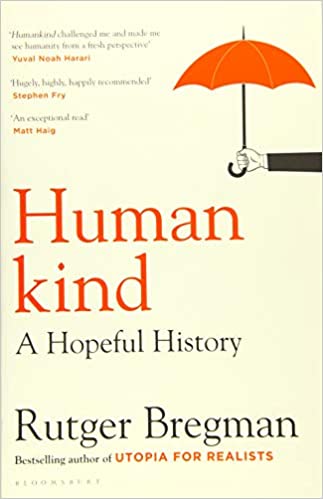If Rutger Bregman were a normal historian, he would have perhaps contented himself with the praise for his 2016 international bestseller, ‘Utopia For Realists: How We Can Build The Ideal World’. But, alas, the ‘Dutch wunderkind’, as The Guardian called him, is not. In 2019, he struck back with ‘Humankind: A Hopeful History’ – a book which proves to be as, if not more, revolutionary than his previous hit.
Bregman, who was recently chosen as Utrecht University’s Alumnus Of The Year, has built his success on arguing for the seemingly impossible. Notably, he supports a universal basic income (which led him to speak at Ted Talks) and taxing the rich (which got him to leave notorious conservative host Tucker Carlson positively flustered). However, in his latest work, he broadens his scope and aims for something bigger than economics. This time, it is humanity that is at stake; and Bregman argues that humans are actually quite kind.
This theory might not seem that radical, but Bregman does a great job in showing how much of our perceptions of humanity of people rest on the Hobbesian principle that, if it were not for the firm grip of authority, we would be doomed to evilness. In ‘Humankind’, Bregman demystifies this idea, pulling from so-called examples of our ‘true nature’ – from ‘Lord Of The Flies’ to infamous social experiments – and poking holes in their logic. Then, to replace each exposed narrative, he offers a new one: stories of compassion and kindness, which prove we may not be so bad after all.
It is nothing short of fascinating that Bregman’s new book came out just months before COVID-19 changed our lives forever. And, even if in recent months we have frequently been exposed to human selfishness, we have also confirmed how caring we can be – from neighbors shopping for one another to teachers trying their hardest to educate through a screen. ‘Humankind’ might propose a revision of the past, but it can also serve as a lesson for the future. Despite the occasional blind spot, it is an enthralling, and, above all else, hopeful read – when we perhaps need it most.
Written by Beatriz Negreiros
